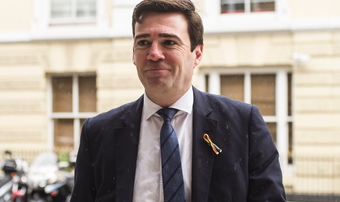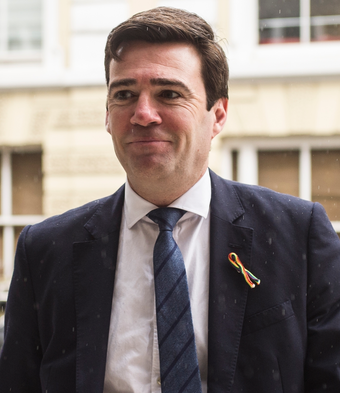The change we really need in 2023

This week we’ve heard from the Prime Minister and Leader of the Conservative Party, Rishi Sunak and from the Leader of His Majesty’s Opposition and Labour Party Leader, Sir Keir Starmer. Both delivered new year speeches. Both aimed to demonstrate that they have the ideas and policies to tackle some of the massive challenges the UK is facing.
Both men agree that Britain needs change. Mr Starmer included that idea in the very first line of his speech. He said: “2023 marks a new chapter for Britain, with a new King to be crowned in May. We must look forward with hope. But for hope to flourish, Britain needs change.”
Mr Sunak, meanwhile, began by acknowledging that many are looking ahead to 2023 with a sense of apprehension. What will happen to inflation? What about the cost of living and interest rates on mortgages? Not only did Mr Sunak say he would provide relief and peace of mind, but he also committed to “changing our country and building a better future for our children and grandchildren.”
Both leaders identify common problems facing Britain. Both want to see change and believe it’s only through change we’ll see progress and restore hope. In this article, I want to summarise what both men put forward as their grand ideas, provide some brief analysis and then finish by demonstrating why both, ultimately, fall short.
The Prime Minister’s idea of change
For the Prime Minister, he built his speech around five key priorities. He called the people’s priorities, a classic slogan, well-worn and used by politicians of various colours. His five promises were:
- Halve inflation.
- Grow the economy.
- Reduce debt.
- Cut waiting lists.
- And stop the boats.
For the rest of the speech, Mr Sunak went into a little more detail on each point. He described them as the foundation for his ambitions for the UK. His aim, he said, was to build a better future. To realise this vision, we need to change our mindset. Change is hard, it takes time, but, Mr Sunak assures us, it is possible.
This mindset change means a more innovative economy, stronger communities, a world class education system, an NHS built around patients and a society that truly values family.
It was the last point that I found both refreshing and frustrating. In the Christian worldview, family is a God created institution that exists as a building block in society. It is the second most important institution, alongside marriage, after the church of our Lord Jesus Christ. So, when the prime minister talks about the importance of family, that must be positive. He also talked about family hubs, something CARE has publicly supported in the past as an innovative policy solution to help parents. If he really does roll more of them out, that will be a huge positive.
In one of the most moving parts of his speech, the prime minister said:
“Because I believe deeply that family – not just government – can help us answer the profound questions we face as a country. When it comes to health, family cares for us when we are sick and old; family teaches us values in education, when it comes to community – family guides us in right and wrong. That’s why family runs right through our vision of a better future.”
Intriguingly, he also explicitly said that the evidence is clear that strong families make for more stable communities and happier individuals. This should not be a surprise. Family is God’s design, and He doesn’t make mistakes. Without giving examples, Mr Sunak is right: the evidence overwhelmingly tells us that stable families are linked to better outcomes, especially for children. At a time when family breakdown is a real problem across our society, it would be welcome indeed if the Government invested in policies to help families stay together.
Of course, it remains to be seen if Mr Sunak’s actions match his rhetoric. And the same is true for Sir Kier Starmer. Fascinatingly, in his first major speech as Leader of the Labour Party, he put families front and centre. Speaking in September 2020 in Doncaster, he said: “I want this to be the best country to grow up in and the best country to grow old in. A country in which we put family first.”
The Leader of the Opposition’s idea of change
But in his new year speech, there was no mention of family or similar themes to that 2020 speech. But what was fascinating was Mr Starmer’s critique of Westminster. He said:
“I’m utterly convinced of this – the Westminster system is part of the problem.”
He went on to say hat people talk about a ‘huge day in Westminster’ when all that’s happened is someone has talked passionately about an issue and that’s it. A short-term mindset dominates Westminster which in turn impacts all the institution which try and fail to run Britain from the centre.
Mr Starmer then offered two steps to secure real change.
Firstly, he pledged to modernise central government so it becomes “dynamic, agile, strong and, above all, focused. Driven by clear, measurable objectives. National mission. A new approach to the power of government.” The second step is giving power to communities: “A huge power shift out of Westminster can transform our economy, our politics and our democracy.”
He also went on to take up the (in)famous slogan of Brexit: take back control. Mr Starmer said a Labour government would embrace the Take Back Control message but they’d turn it from a slogan into a solution. Control would be spread out from Westminster. New devolved powers over employment support, transport, climate change, housing, culture, childcare provision and how councils run their finances.
All of this would lead to genuine hope, which Starmer defined as not utopian, grand vision sort of hope, but ordinary, take it for granted sort of hope.
Two quick observations. I like the fact Mr Starmer is talking openly about the problems in Westminster. The short-termism he identifies is a potent enemy of lasting change. I think he missed a trick by not also pointing the finger at elements of the UK political media, who, I wonder, have become addicted to the high politics of personalities and power dynamics and scandal, rather than the more sober scrutiny of actual policies.
I also liked the idea of devolution and empowering communities. In the Christian worldview, localism is important. There is a role for the state, absolutely, see Romans 13, but it is not the only agent of change. The closer people are to decision making, the more accountable and involved you feel. It’s why devolution at a national level with the Scottish Parliament, Welsh Parliament and Northern Ireland Assembly has, broadly speaking, proven popular with voters.
The change we really need
Looking at both speeches, what’s most striking is that the very best they can offer is a ‘maybe’. Every leader comes to the office of prime minister with bold ambitions to change the country. And every one meets the reality that they are not fully in control. The ordinary hope Mr Starmer spoke of is the hope of uncertainty. He might succeed. But he also might not.
What a contrast on offer by a biblical hope, which is not uncertain, but solid, sure and reliable. This sort of hope is the hope of glory to come. We live praying for improvements and policies that will uphold the most vulnerable in our society. But we do not depend on that, with out happiness based on it. We are citizens of heaven (Philippians 3:12) and our hope is stored up in heaven (1 Peter 1:3). Whoever wins the next election and whatever is achieved over the next 18 months, I’m thankful to God that I’m looking forward to a city who’s foundations can never be shaken.
More than this, according to the Christian worldview, what’s the change we really need? There are elements in both speeches that I can agree with as a Christian. But the diagnosis offered by both leaders of the challenges facing the country is too shallow. Both men seem to believe fundamentally that human beings are good and therefore, it’s possible through government to enact positive change.
To which my reply is yes and no. Yes, positive change is possible. I don’t personally subscribe to a theology that just see’s everything getting worse. At the very least, we’ll see good and evil rise together (see the parable of the wheat and tares). But equally, the problem we face as a country is the problem of sin. It’s the problem of our rebelling against God and His good design. Romans 1 teaches us that by nature, we suppress the truth of God and worship and serve created things rather than the Creator.
Since the diagnosis is overly superficial, both leader’s promises of change fall short of what we really need. The Psalmist teaches us that righteousness exalts a nation, but sin is a reproach to any people. Ultimately, what we really need is gospel change in more hearts and minds. We need biblical teaching to infuse laws and legislation. We need to recapture the preciousness of all human life. We need to restore the idea that God deals with nations according to how we act.
Such change can only be realised under two conditions. Firstly, that God works in power both to revive His people and to awaken many in our communities. Secondly, when the Lord’s people grasp their high calling to be light and salt in our society, which involves getting engaged with politics. For most, that means responding to consultations, writing to MPs etc… and for some it means following the calling of going into politics to be light and salt in the corridors of power.
I’m glad there were elements in both speeches I could agree with as a Christian. But no matter how gifted both leaders are, the change they offer falls way short of what’s needed. For the change we really need, we must look to God and pray as the Prophet Habakkuk did:
“Lord, I have heard of your fame I stand in awe of your deeds, Lord.
Repeat them in our day in our time make them known in wrath remember mercy.” Habakkuk 3:2 (NIV)






